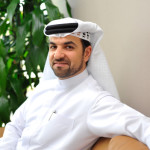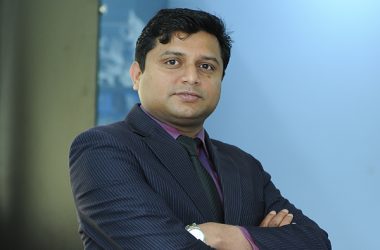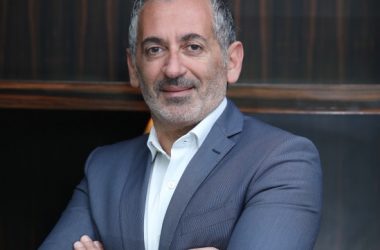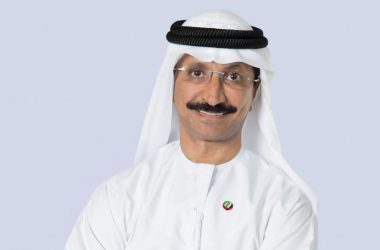 Dubai Holding Commercial Operations Group (DHCOG) has recently gone live with 18 Oracle ERP modules. Embarking on a journey to play the company’s part in making Dubai a Smart City, Mohammad Sabah Al Khalaf, Chief Information Officer, DHCOG, knew that an ERP upgrade was long overdue.
Dubai Holding Commercial Operations Group (DHCOG) has recently gone live with 18 Oracle ERP modules. Embarking on a journey to play the company’s part in making Dubai a Smart City, Mohammad Sabah Al Khalaf, Chief Information Officer, DHCOG, knew that an ERP upgrade was long overdue.
Two years ago, the U.A.E Government published its eGov Strategy 2012-2014 in line with UAE Vision 2021, aimed at digitising all government services. Putting the initiative into effect, the IT team at Dubai Holding Commercial Operations Group (DHCOG) had to make sure the technology infrastructure at their back-end could support a massive roll-out of mobile services. With fundamental changes on the horizon, Mohammed Sabah Al Khalaf, CIO, DHCOG, took the opportunity to overhaul the company’s aging ERP systems.
DHCOG develops and manages Dubai Holding’s businesses in hospitality, business parks, real estate and telecommunications. As the commercial operations wing of Dubai Holding Group, it manages the operations of TECOM Investments, Jumeirah International, Dubai Properties Group (DPG) and Emirates International Telecom, also known as du Telecom.
DHCOG’s commercial operations wing manages assets worth AED 85.5 billion and a workforce of 20,000, which plays a key role in serving the emirate’s economy on a daily basis, through services that cater to enterprises, consumers and governments alike. The role technology plays in this process is critical in ensuring there is no service downtime. When it came to making the services digital, the IT Team evaluated the existing technology infrastructure and if there was a need to streamline it.
Having gone through an Oracle ERP implementation back in 2005 when the business of DHCOG was limited to TECOM Investments only, Al Khalaf knew the IT infrastructure wasn’t compatible with business anymore. “A major upgrade had to be introduced now as we are at the forefront of a smart Dubai,” he says. “The initial implementation wasn’t a failure; it was done 10 years ago, so in today’s terms it’s outdated in terms of design and technology.”
Currently, the IT team at the group is busy rolling out mobile applications that they hope will make Dubai a city of the future. “It is imperative for us today to upgrade the back-end to the latest in technology in order to support the Smart City initiative,” Al Khalaf says. In this vein, the group has recently launched TECOM Direct, an online directory of TECOM, and TECOM Suggest, a suggestions portal.
The IT team had to make sure the eservices rolled out were dynamic and facilitated third-party liaising over the web. Its mParking app is currently going through an upgrade that will allow it to pick up images of free parking spaces in the vicinity from cameras. The upgraded app will direct one to the nearest free parking available in an interactive manner.
Another obstacle the existing infrastructure posed, explains Al Khalaf, was an inability to cope with the group’s modified business model. It inhibited a smooth spin-off of businesses from the holding company’s balance sheets. “A case in point here is Dubai Properties Group (DPG),” says Al Khalaf. “Similar to TECOM, it is an entity that reports to the holding company. It has recently gone through various structural changes that will eventually bring a form of autonomy to the business’s operations although it will continue to report to the holding group,’ Al Khalaf said.
Making the IT more efficient, the redundancy had to be eliminated from the altered operational model of a spun-off business. With all the reasons favouring the move, Al Khalaf proposed a re-implementation of ERP within DHCOG in 2012. The problem was to gain the approval of the senior management on re-selecting Oracle.
As Al Khalaf expected, the issue drew a lot of debate. “The challenge was the vast approval tier,” he says. “After studying the total investment on each provider and the cost of ownership, Oracle was chosen as it is the only solution provider that integrated seamlessly with the entire IT Infrastructure of the group. Moving onto a different technology provider would have exposed challenges with user training, system integration and most importantly, information security. We have already made a lot of investment in such systems and training our staff, which can’t be overlooked.”
Once Oracle had been selected, a GAP analysis was conducted on the existing infrastructure by DHCOG’s implementation partner SatyamTech. The findings were presented to us in a project management report, and DHCOG has since then been promised three additional months of support after the launch from SatyamTech.
The implementation took two years to go live, but it finished with a revamp of the financial management system, the human capital management system, the supply chain management system and the project accounting system. Before the actual launch, a conference room pilot run of all the modules was carried out by the IT team. After the pilot run was successful, the team worked with SatyamTech to execute data migration and user acceptance trainings.
“Two years later, 18 ERP modules have gone live,” Al Khalaf says. “Given the magnitude and the footprint of the implementation, we have been requested to showcase it at the Oracle Openworld 2015. The technology infrastructure in place today is robust enough to support all developments and service roll-outs for the next five to ten years. In short, the infrastructure in place today is better in terms of security and performance.”
Al Khalaf’s team is currently in the process of monitoring the project’s KPIs. The most important of these is an accurate migration of data without any security breach. Looking ahead, Al Khalaf is keeping an eye out for any glitch in business continuity should it arise. For the time being at least, Al Khalaf is confident of the project’s durability.
“Based on the current forecast, there will not be a need for another implementation within the next 5-10 years as we can support telecom, real estate, and general investment companies with the current ERP system in place,” Al Khalaf says.
With a technology infrastructure in place today that is compatible with the vision of smart Dubai, Al Khalaf feels it is about time DHCOG goes-to-market with the eServices more aggressively. Other projects currently underway within the DHCOG include the D3 i.e. Dubai Design District, the fashion hub of U.A.E, and the Mall of the World; which would become the biggest temperature-controlled mall worldwide.
The paradigm of change will not be limited to real estate. It will also encompass media, event management, hospitality, energy, healthcare and manufacturing services, meaning Al Khalaf and his team will continue to play a pivotal role in the group.





